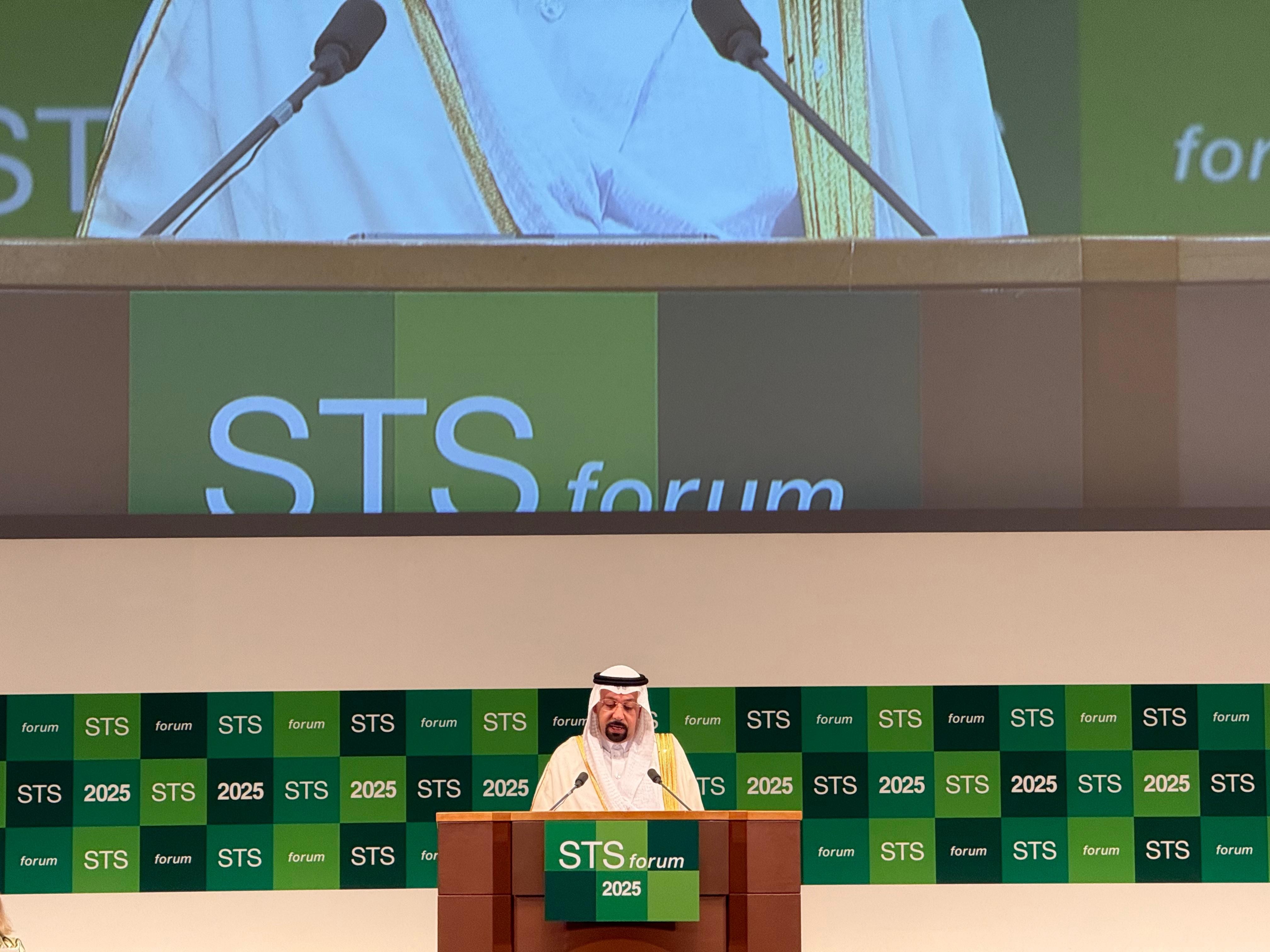KACST President Affirms Saudi Arabia's Commitment to Clean Energy Solutions, Investing in Deep Technologies for Sustainability

Kyoto, October 07, 2025, SPA -- President of King Abdulaziz City for Science and Technology (KACST) Dr. Munir Eldesouki reaffirmed Saudi Arabia’s commitment to achieving net-zero emissions by 2060 through a national innovation strategy focused on expanding clean energy solutions and investing in deep technologies, which are expected to contribute to 40% of future emissions reduction—advancing the Kingdom’s ambitious Vision 2030 sustainability goals.
Eldesouki delivered these remarks during a panel session titled “The Road to Sustainability: Toward a Carbon-Free Society” held as part of the annual Science and Technology in Society (STS) Forum in Kyoto, Japan, which was attended by Emperor Naruhito of Japan, Prime Minister and Honorary Chairman of the forum Shigeru Ishiba, along with senior officials, industry leaders, and representatives of international organizations.
“The Kingdom adopts the Circular Carbon Economy as a comprehensive and practical framework to achieve its national goals under Vision 2030, striving to reach net-zero emissions by 2060 through pioneering initiatives that include reducing 278 million tons of carbon emissions annually, planting 10 billion trees under the Saudi Green Initiative, capturing 44 million tons of carbon dioxide each year by 2035, and achieving a 50% clean energy mix by 2030,” Eldesouki stated.
He explained that Saudi Arabia has launched several pioneering projects, including the Carbon Capture Center at Aramco, large-scale battery storage systems in Bisha, and green hydrogen and ammonia facilities in NEOM—all contributing to enhancing energy security and industrial competitiveness. He also highlighted international partnerships with the University of California, Berkeley in clean energy, water desalination, and carbon capture research, as well as the deployment of artificial intelligence applications during the Hajj season to enhance real-time monitoring and improve decision-making efficiency.
Eldesouki emphasized that research and development are key drivers of sustainability. He stated that KACST, as the Kingdom’s national laboratory and home to innovation oases, leads research programs focused on converting carbon waste into hydrogen fuel, developing technologies for extracting water from desert environments, and improving the efficiency of solar panels in desert climates. He also noted the adoption of advanced technologies in semiconductors, artificial intelligence, and satellites to monitor desertification, emissions, and water management.
-- SPA





